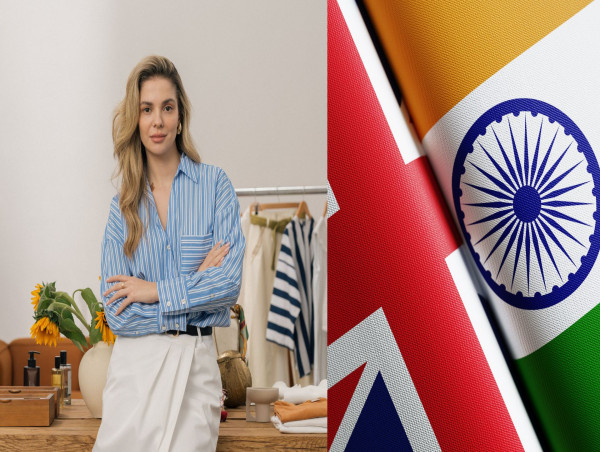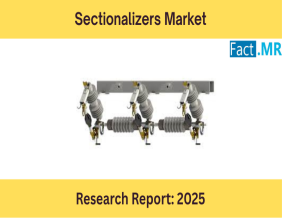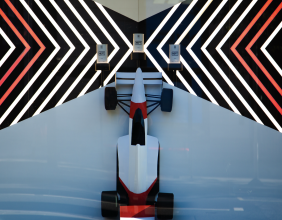In simple terms? British fashion startups, mid-sized brands, and sustainability-focused retailers just got a fast pass to more affordable, flexible, and ethical sourcing from India.
And Indian apparel manufacturers, especially those like NoName, who have long-standing UK partnerships, are quietly celebrating. Not with fireworks, mind you, but with neatly folded organic cotton tees and some very relieved logistics managers.
*Tariffs Take a Tumble, and So Do Entry Barriers*
Prior to the FTA, UK-based apparel brands faced import duties ranging from 8% to 12% on garments manufactured in India. This made it tough for smaller or sustainability-minded brands to work with Indian factories, especially those needing lower MOQs (minimum order quantities) or niche fabrics like bamboo jersey or Bemberg.
Now, with tariffs eliminated on over 95% of Indian exports to the UK, sourcing from India just got a whole lot more cost-effective—and appealing.
“For many of our UK clients, this isn’t just about saving a few pounds per piece. It’s the difference between being able to source responsibly from India, or not at all,” says Pankaj Agrawal, founder of NoName, an Indian private-label clothing manufacturer that’s quietly worked behind the scenes with major UK high street retailers (yes, even the ones that love initials).
*Timing, Meet Opportunity*
The trade deal couldn’t have come at a better time. Post-Brexit, UK fashion brands have been actively searching for stable, non-EU sourcing partners. At the same time, UK consumers are placing increasing value on sustainability, ethical production, and traceable supply chains—turning those once-niche values into mainstream market demands.
“The UK fashion ecosystem is changing. Younger brands want cleaner fabrics, lower carbon footprints, and suppliers who are okay with orders under 500 units,” says a sourcing consultant for several London-based D2C labels. “India, especially manufacturers like NoName, checks all those boxes—and now, the FTA removes the price barrier too.”
*Why India? And Why Now?*
Here’s why the UK–India textile corridor is heating up:
- Zero Tariffs: Cost savings make even smaller orders viable.
- Skilled, Ethical Labour: India's apparel industry has a strong base of socially audited factories and experienced artisans.
- Sustainable Sourcing: From GOTS-certified cotton to vegan silk alternatives like Bemberg, India's material innovation is no longer just catching up, it’s setting trends.
- Flexible MOQs: Companies like NoName are structured to support indie and mid-size fashion brands, not just massive chain retailers.
This shift isn’t speculative. According to India’s Ministry of Commerce, UK apparel imports from India grew 19% year-on-year even before the FTA was signed. Analysts predict a doubling of UK–India apparel trade by 2029.
*Spotlight on Sustainability: The Gentle Silk Alternative*
One of the unsung heroes of this new sourcing wave? Bemberg—a luxurious, biodegradable fabric made from cotton linter, often dubbed the “gentle silk” because it offers all the softness and drape of traditional silk, minus the silkworms and guilt.
NoName, among India’s leading manufacturers working with this innovative fabric, has been supplying UK brands with vegan silk dresses, scarves, and various other garments for years.
“British brands love Bemberg once they touch it. It’s ethical, elegant, and versatile—a bit like if silk went on a sustainability retreat,” quips Pankaj.
NoName’s range of sustainable fashion solutions, including bamboo blends, organic knits, and non-toxic dyes, is now even more accessible to UK designers and retailers who previously hesitated due to shipping costs and customs duties.
*From Manchester to Mumbai: A Relationship That’s Already Woven In*
Let’s not forget—India and the UK share more than just cricket rivalries and curry recipes. The textile connection runs deep, and many UK brands already have relationships with Indian garment exporters. The new FTA simply removes the friction.
For instance, NoName has quietly been part of the UK fashion story for over two decades, supporting everyone from high street labels to edgy eco-brands through full-service manufacturing—from sourcing to sampling to final shipment.
“We’ve always loved working with British clients. They’re creative, detail-oriented, and many of them truly walk the talk on sustainability. Now with this FTA, it’s easier for us to support their growth, even for seasonal drops or limited collections,” says NoName’s production head.
*What This Means for UK Fashion Brands*
If you’re a UK-based fashion brand—even a small one—this deal just opened a door. And behind that door? Affordable, ethical, scalable sourcing options that were previously too expensive or logistically messy to consider.
Here’s what becomes possible now:
- Test sustainable styles without a large capital outlay
- Launch capsule collections with low-risk, small batches
- Tap into fabrics like hemp, lyocell, and Bemberg without inflated costs
- Work with partners who speak “startup” just as well as they speak “scale”
The India–UK FTA isn’t just a footnote in trade policy. It’s a wake-up call for UK fashion players to rethink how and where they manufacture—and how they align their values with their value chains.
*Final Stitch*
Fashion isn’t just about what we wear. It’s about how it's made, where it comes from, and the relationships woven into each garment.
With the India–UK Free Trade Agreement in place, British fashion brands now have the opportunity to do good while looking good, and to partner with Indian manufacturers who’ve been quietly preparing for this moment for years.
NoName may not scream from the rooftops (they prefer sustainable rooftops anyway), but they’re ready, with flexible MOQs, certified fabrics, and a global team that understands your market and your mission.
Pankaj Agrawal
Celestial Corporation
+91 96505 08508
email us here
Visit us on social media:
LinkedIn
Instagram
Facebook
YouTube
Legal Disclaimer:
EIN Presswire provides this news content "as is" without warranty of any kind. We do not accept any responsibility or liability for the accuracy, content, images, videos, licenses, completeness, legality, or reliability of the information contained in this article. If you have any complaints or copyright issues related to this article, kindly contact the author above.
![]()





